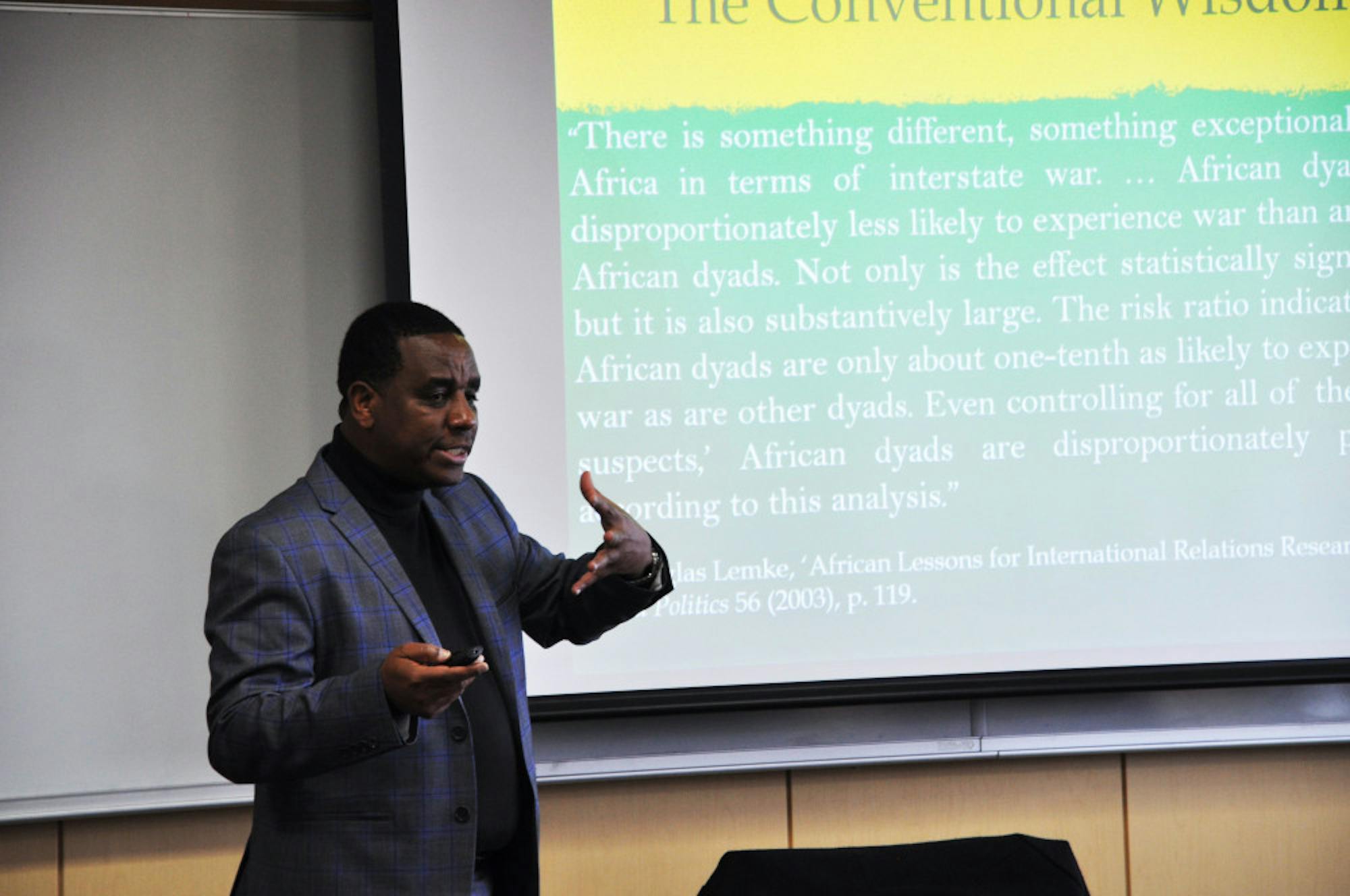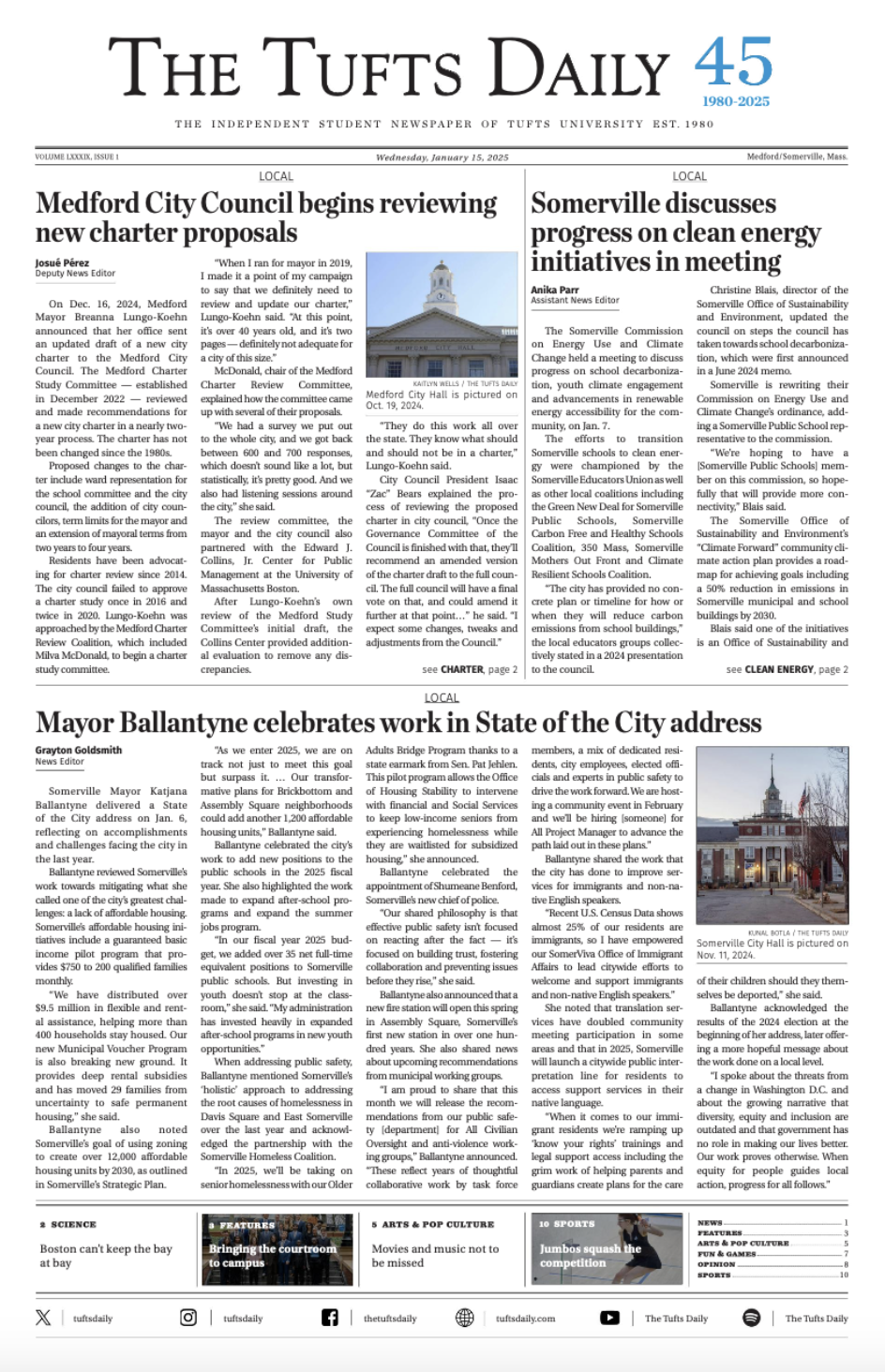Noel Twagiramungu, a fellow at the World Peace Foundation at the Fletcher School of Law and Diplomacy, and Alex de Waal, executive director of the World Peace Foundation, gave a talk on Monday titled "Transnational Conflict." The panel examined the conventional wisdom regarding African regional conflicts, and questioned the effectiveness of prevalent research methods in political science.
Hosted by the Fletcher School of Law and Diplomacy in the Cabot Intercultural Center, the panel presented on the paper titled “Introducing the Transnational Conflict in Africa Dataset,” which revisited violent conflicts in Africa from 1960–2010. The data recorded attributed causes to African conflicts at the time so that they reflect contemporary hindsight.
The panelists asserted that considering historical sources of information, such as memoirs and personal histories, is more informative than only the raw data published at the time of conflicts. According to the panelists, this additional historical analysis is essential to understanding the reality behind many African conflicts.
According to the paper, African states often conduct their conflicts covertly and using proxies instead of being burdened by civil wars, which the panel explained is the conventional wisdom.
“If you’re relying on contemporary sources in the media, and you’re relying on coding a conflict according to the recognized belligerent forces killing one another, then clearly if there’s a covert war going on, or if war is being put by proxy, it wouldn’t be evident in your dataset,” de Waal said.
The data-driven methodologies that are standard practice in political science obscure the undercurrents researchers try to explain, according to Twagiramungu and de Waal. They added that this leads to a knowledge gap between academia and real-life policymakers.
Twagiramungu argued that political scientists who studied the region usually based their scholarship on the assumption that African conflicts were mostly civil wars. According to Twagiramungu, they ignore the external influences on the political actors in these disputes.
“Most of the quantitative political science and international relations work on Africa are only concerned with the questions of the causes of rebellions and operations of non-state armed groups," Twagiramungu said. “We talk about genocide in Rwanda, we talk about civil wars in parts of West Africa and Liberia, but we cannot understand those without taking into account the transnational dimensions [of these disputes].”
The paper, which was co-written by Twagiramungu, de Waal, senior researcher at ETH Zurich Allard Duursma and senior fellow at the World Peace Foundation Mulugeta Gebrehiwot Berhe, classified only 14% as "internal" of two-sided conflicts in Africa between 1960 and 2010, as opposed to 86% as “internationalized internal.”
The authors of the paper contrasted their analysis to the data of the Uppsala Conflict Data Program (UCDP), the leading provider of data on organized violence and armed conflict, which estimates solely “internal” two-sided conflicts at 82%.
De Waal later described his reservations about the UCDP's methodology, which he criticized for not revising data after its initial release.
“The real difficulty comes when you want to use these datasets ... to draw larger political connection[s] about the nature of the conflict, and that’s where [UCDP] is simply not a good disclosure of reality,” de Waal said.
Heargued that another deficiency he perceived in academic work in this area was the lack of informal conflict resolution in formal analysis. Many conflicts, however, are solved within African political establishments in informal settings, according to de Waal.
During the question and answer session, Fletcher student Andreas Hahn asked the panel to describe what it believed were the consequences of researchers failing to recognize the shortcomings of their own methodology, which the panelists criticized earlier.
Twagiramungu, who is originally from Rwanda, cited the 1994 genocide in his home country as an example of the inconsistencies in responses to atrocities.
“[The Rwandan Genocide] is a civil war within the context of an internationalized war. So we see the Arab movement from Uganda invading Rwanda, then Rwanda calling upon external supporters in Congo, France, Belgium, [among other countries],” Twagiramungu said. “Thus when the genocide happened, the war was already polarized ... so we have France, we have the U.S., we have the U.K. supporting different sides."
World Peace Foundation panelists discuss internationalization of African conflicts

Noel Twagiramungu speaks at an event titled "Transnational Conflict" at The Fletcher School of Law and Diplomacy on March 2.





